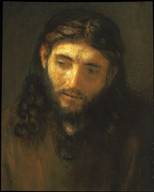 |
|
Today is the Feast of the Conversion of St Paul, and as my namesake I feel a particular affinity. I was reading his letter to the Romans all last week, accompanied by Tom Wright's majesterial book 'Paul and the Faithfulness of God'. Last year I wrote to Tom Wright to ask for some suggestions about my sabbatical project, and he replied, like most of his writing, with a densely worded email suggesting I read Chapter 7 of his book. It's taken my 2 weeks to read that chapter, so I don't think I'll have time to read the whole TWO volumes during my sabbatical - let alone digest it. But this chapter has been helpful in showing how Paul has a background narrative - a 'back story' - against which he does his theology. The back story is in several layers: God and creation, God and humanity, God and Israel, God and Messiah. In Romans Paul shows that God's plan was to work through Israel to redeem mankind and ultimately the whole of creation. But Israel's rebelliousness made it part of the problem, so God raised up one who would fulfil all that Israel should have done - the Messiah. And through the Messiah Israel's mission is fulfilled to bring salvation to humanity and ultimately creation.
My sabbatical project is to turn some of this teaching into stories that children and adults can connect with, bearing in mind that Paul already has a back story - a 'meta-narrative'. There's a limit to how much I can read and study at one go, so I've found that walking has become an essential means of breaking study time into manageable chunks. I was pleased, therefore, to read this article on the BBC website:
The Slow Death of Purposeless Walking That is walking whose purpose is simply to think and reflect rather than to travel from A to B. We are so fortunate round here to have easy access to the edge of the North Downs. I can walk up to Farthing Down in about 20 minutes and see cattle grazing, and in the distance The Shard, The Gherkin, and Canary Wharf. So I can be in London and the country at the same time.
And it was to London that Nicy and I travelled yesterday, to worship at Southwark Cathedral at the morning sung eucharist. What a lovely mix of people: families bringing children to be baptised, gay men in their slim jackets, old ladies, the actor Timothy West and his wife Prunella Scales - regular members of the cathedral congregation, black and white. Surely a realisation of Jesus' own picture of the kingdom of God as told in his story of the great banquet. "Go and invite everyone you can find, both good and bad, and bring them in," the master said to his servants. After a tasty lunch in the Cathedral Refectory we made our way through the lanes and alleys of the south bank to the Sam Wanamaker Playhouse for a concert of Viennese Salon Music. Not just
küchen or
bons-bons but 'meat sandwiches' of Schoenberg, Richard Strauss, Berg and Bach. But we were treated to some delightful
bons-bons of Lehar and Oscar Strauss brought to us by the ever-charming Felicity Lott. Lehar's
'Komm zu mir zum Tee' was about anything but tea! London is simply the best city to wander through on a warm afternoon by the river - and it was warm...I even saw some shorts.
And back to St Paul. If I was asked my favourite verses of his letters I would think of 'God has poured his love into our hearts by the Holy Spirit whom he has given us' (Romans 5), 'I want to know Christ and the power of his resurrection' (Philippians 3), and those words set so powerfully to msuic by Handel in 'Messiah': 'Behold, I tell you a mystery; we shall not all sleep but shall be changed in the twinkling of an eye. The trumpet shall sound and the dead shall be raised incorruptible.' That is the hope to which all whose faith is in Christ are heading.
 I'm glad I don't have to commute regularly to London, though when I do I enjoy walking down Borough High Street. During the day the get the delightfully exotic aromas of the coffee bars - in particular the Moroccan one halfway down. At night, it's like a seen from Dickens' London.
I'm glad I don't have to commute regularly to London, though when I do I enjoy walking down Borough High Street. During the day the get the delightfully exotic aromas of the coffee bars - in particular the Moroccan one halfway down. At night, it's like a seen from Dickens' London.








 Well worth reading what Bono has to say about Karma and Grace. I guess that the majority of people live according to unspoken Karma philosophy. Bono shows, in his own edgy style, how liberating is Grace.
Well worth reading what Bono has to say about Karma and Grace. I guess that the majority of people live according to unspoken Karma philosophy. Bono shows, in his own edgy style, how liberating is Grace.
